
DOJ Olmstead Technical Assistance
DOJ Olmstead Enforcement by Circuit Court
DOJ Olmstead Enforcement by Case or Matter
About Olmstead
The story of the Olmstead case begins with two women, Lois Curtis and Elaine Wilson, who had mental illness and developmental disabilities, and were voluntarily admitted to the psychiatric unit in the State-run Georgia Regional Hospital. Following the women's medical treatment there, mental health professionals stated that each was ready to move to a community-based program. However, the women remained confined in the institution, each for several years after the initial treatment was concluded. They filed suit under the Americans with Disabilities Act (ADA) for release from the hospital.
The Decision
On June 22, 1999, the United States Supreme Court held in Olmstead v. L.C. that unjustified segregation of persons with disabilities constitutes discrimination in violation of title II of the Americans with Disabilities Act. The Court held that public entities must provide community-based services to persons with disabilities when (1) such services are appropriate; (2) the affected persons do not oppose community-based treatment; and (3) community-based services can be reasonably accommodated, taking into account the resources available to the public entity and the needs of others who are receiving disability services from the entity.
The Supreme Court explained that its holding "reflects two evident judgments." First, "institutional placement of persons who can handle and benefit from community settings perpetuates unwarranted assumptions that persons so isolated are incapable of or unworthy of participating in community life." Second, "confinement in an institution severely diminishes the everyday life activities of individuals, including family relations, social contacts, work options, economic independence, educational advancement, and cultural enrichment."
Faces of Olmstead
The personal stories of a few of the thousands of people whose lives have been improved by the Olmstead decision and the Department's Olmstead enforcement work.
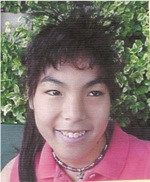
LIZ
Liz participates actively in a young adult group at her church and she has made many friends there. She volunteers at the local food bank and at a retirement center.
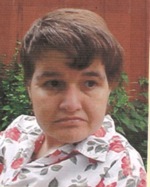
SHAWN
Shawn now has a full life with many friends and people who truly know her and love her. She is no longer isolated.

STEVEN
"I can't help but think if Steve had this opportunity twenty-five years ago, where he'd be today - we are very lucky to have Steve on board." -- Alan, Steven's employer.
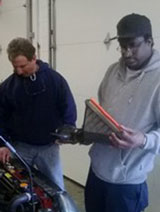
ORQUIDEO “Q”
There is "no question that Q should be working in the community" rather than a sheltered workshop - "he is a great employee and has continued to grow every single day." -- Greg, Q's supervisor
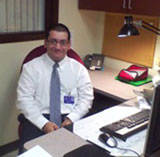
LOUIS
"Louis has come out of his shell and his confidence levels are through the roof. Now, the sky is the limit." -- Lori, Louis's mother

PEDRO
His manager said that Pedro was chosen for the award because "he has changed the culture of the company by inspiring everyone around him to reach higher; he has led by example." The company's owner describes Pedro as the heart of the business: "He has a great personality and loves working here – but more than just a personality, he does a great job."
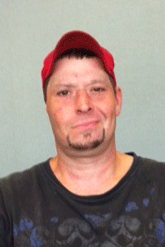
MICHAEL
Michael, when asked to describe his life now, responded: "I couldn't be any happier than I am now; don't ever see myself going back."

KNICOMA
Asked how the Settlement Agreement affected him, Knicoma responded "Matter of respecting somebody – respect is letting others know that you honor him as a human being."
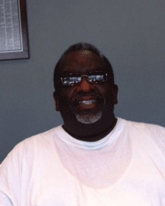
JAMES
When asked why he provides these services, James answered that "I enjoy helping people and giving back."
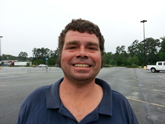
MICHAEL
Michael spent years in and out of rehab and battling depression, eventually ending up in a halfway house where he constantly felt unsafe. Michael said he “never had any peace” and he “didn’t care if I died.”

JOHN
Like many people, John Calvert likes to go swimming. And this summer, there was no shortage of it for the 36-year-old Athens, Ga. resident. He often spent afternoons lounging by the pool in his apartment complex, and he regularly visited a local lakeside recreational area complete with picnic tables, beach, and a small swimming area. John, who has a severe intellectual disability, likes to call it “the ocean.”

CINDY
“It’s great having Cindy so much closer and being able to see her more often. But my biggest concern is her well-being, and I can see that she’s being taking care of. And she just seems really satisfied. That’s important to me.”
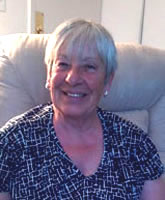
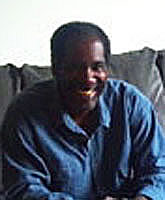
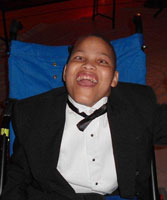
STEFON
My son’s life is significant; he has affected the lives of many people that he has encountered in the community.”
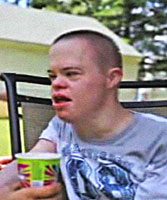
DOUG
“We have seen many improvements in Doug’s functioning, behavior, and lifestyle since he moved to his group home. The group home not only provides for Doug’s medical needs, but it also allows Doug to thrive and do those things which make him happy.”
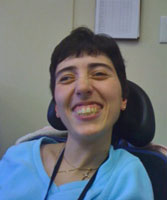
MARISA
“I have read the settlement agreement over and over again. In short, it gives people a chance to live independent lives in the community, to thrive in the community, and to give back to the community to whatever degree they can.”


NENA
“Olmstead opened up a world for people like me who were trapped. I’m fifty-one years old and I don’t trap well.”




